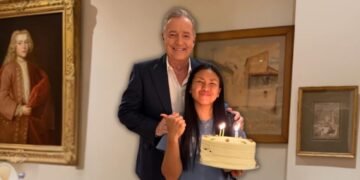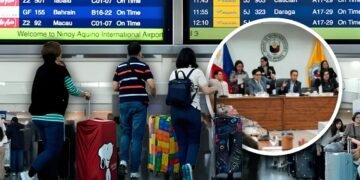A recent episode of the PGMN Podcast featured PGMN anchors James Deakin and Orion Perez Dumdum in a detailed discussion on constitutional reform and its potential impact on the country’s economic and social challenges.
The full episode tackled ongoing national issues—including flooding, condo oversupply, and heavy congestion—and asked why constitutional reform should take precedence over these immediate concerns.
Dumdum, who is not only an advocate of the CORRECT Movement but also one of PGMN’s most outspoken anchors, argued that these problems “are symptoms of deep-seated systemic issues” tied to the 1987 Constitution.
Dumdum explained that the overly centralized structure of government has funneled economic activity into Metro Manila, driving internal migration and worsening congestion. He emphasized that the Constitution’s foreign ownership restrictions further limit the country’s competitiveness, noting that the Philippines is the only ASEAN nation with these provisions embedded directly in its Charter.
While recent legislation has opened certain sectors, Dumdum said the restrictive constitutional language continues to give global investors the impression that the Philippines is not fully welcoming to foreign capital. He added that neighboring countries lead with openness and regulate through laws—not constitutional bans—which allows them greater flexibility to adjust to global markets.
The episode also highlighted the long-term impact on Filipino workers. Dumdum said that limited job creation forces millions of Filipinos to seek work abroad, a pattern reinforced by foreign companies that often prefer to hire Filipinos but choose to base operations in other ASEAN countries due to friendlier investment climates.
Dumdum also reiterated the CORRECT Movement’s broader goals: economic liberalization, a shift toward a federal system to encourage regional development, and eventual transition to a parliamentary system to strengthen accountability and reduce personality-driven politics.
The discussion aired as lawmakers continue to debate potential constitutional amendments. While some proposals suggest adding “unless otherwise provided by law” to ease certain restrictions, Dumdum argued that this approach is insufficient and rooted in past political sensitivities. He maintained that full removal of restrictive provisions is essential if the Philippines hopes to improve its economic outlook.












